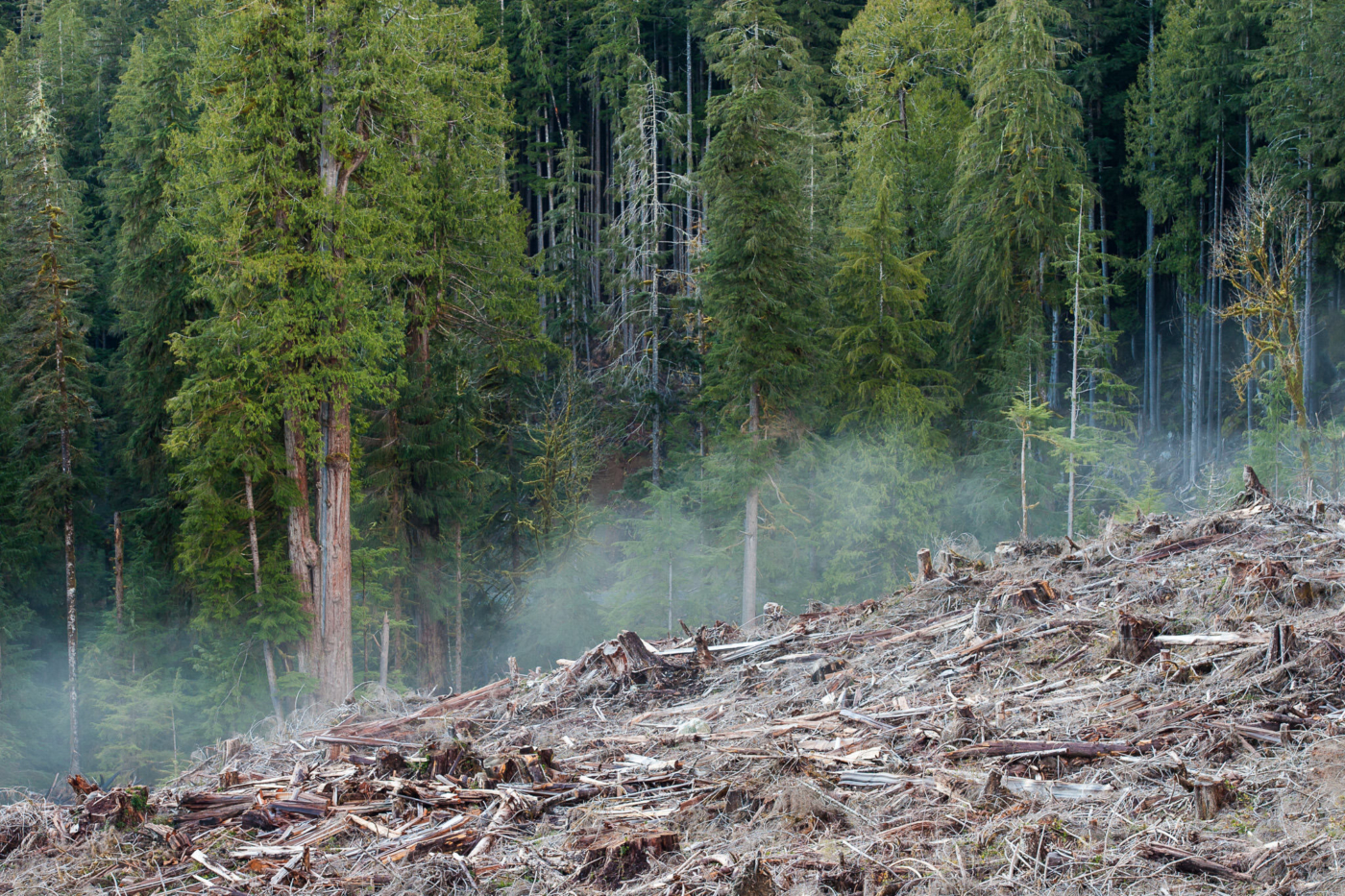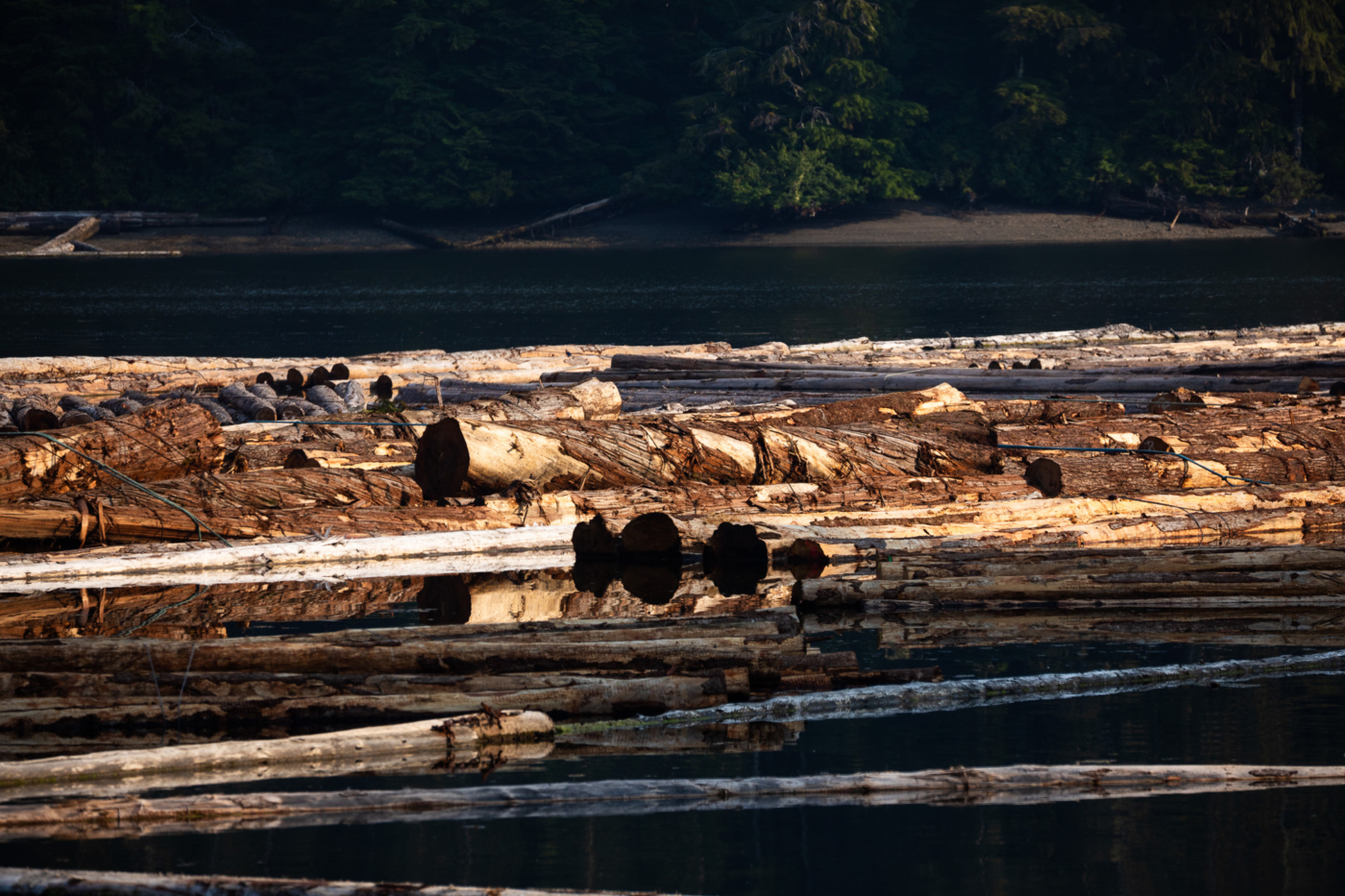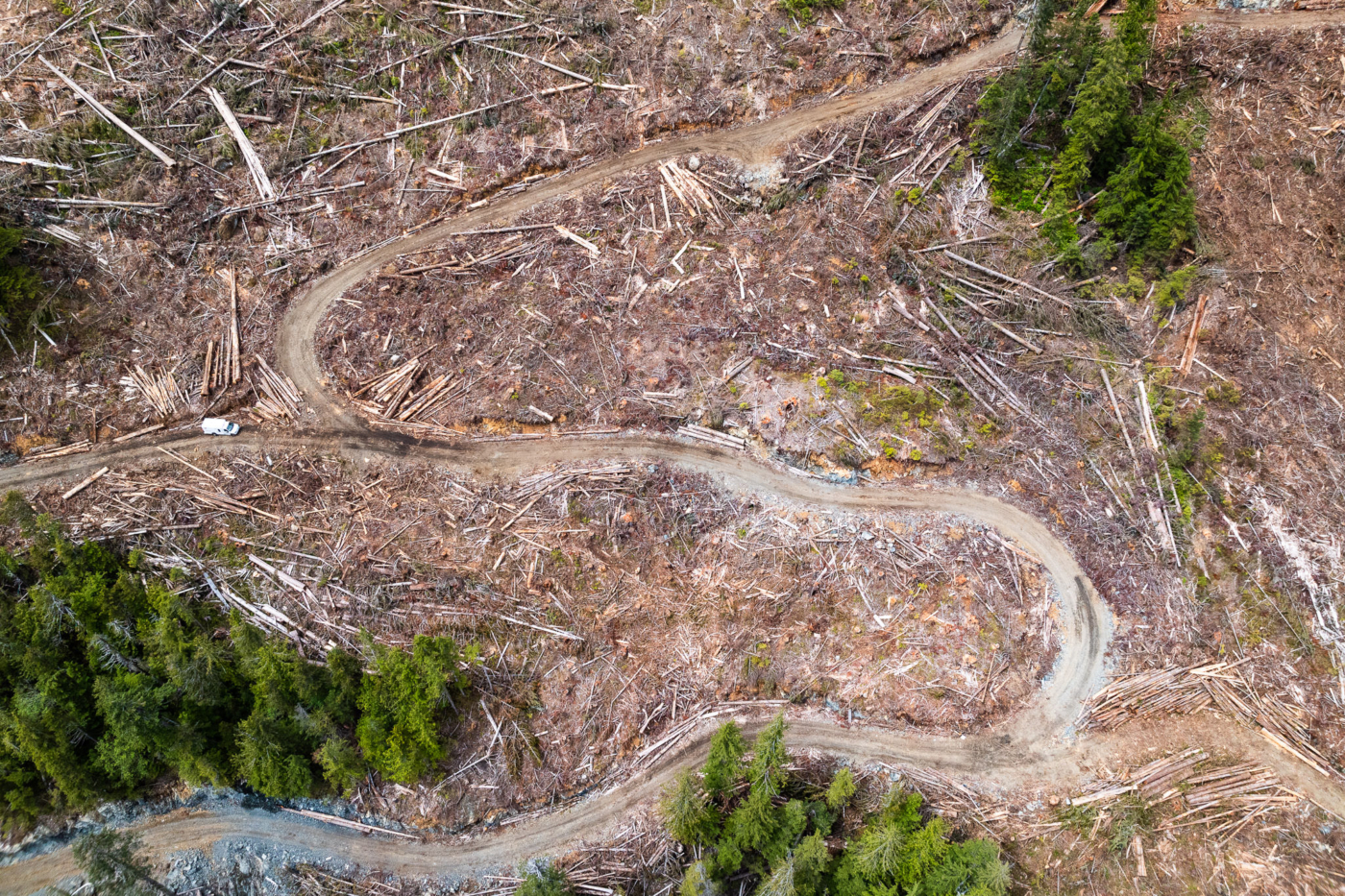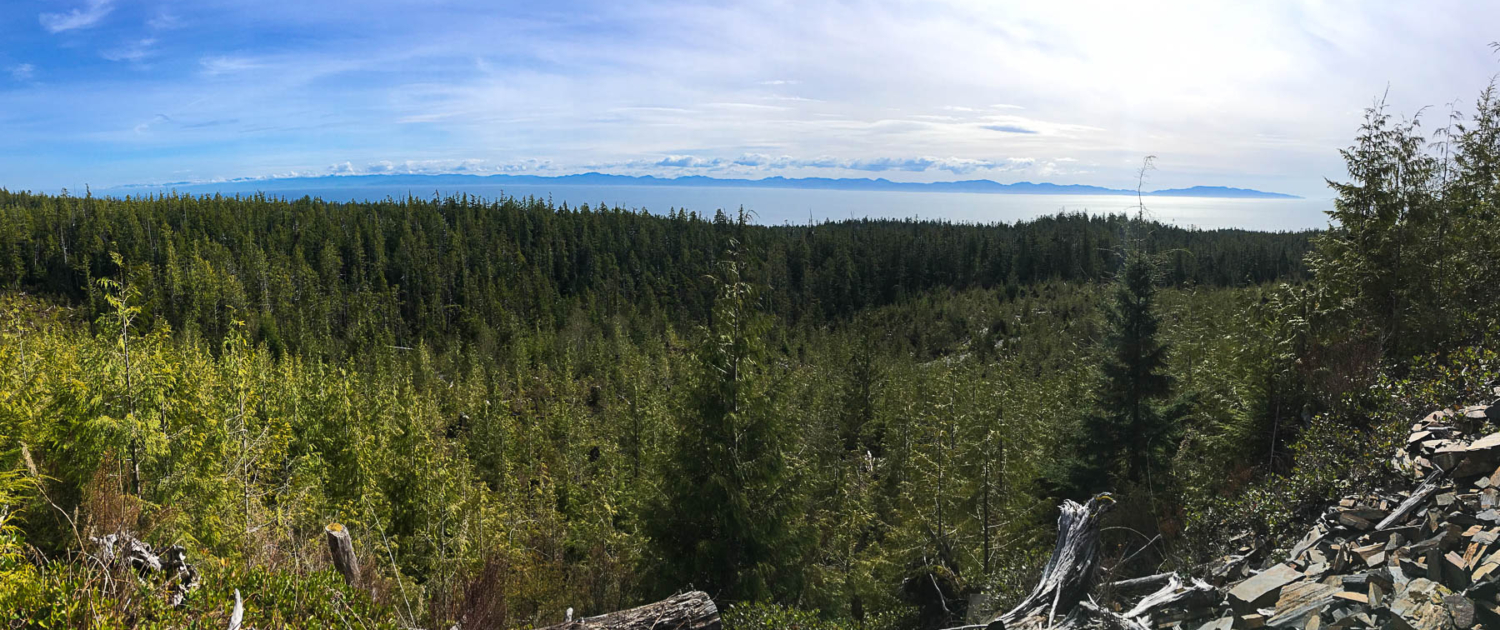 Apr 18 2019
Apr 18 2019Eco-activists urge halt to logging plans near Juan de Fuca park
Times Colonist
April 18, 2019
NOTE: While old-growth logging would not occur within Juan de Fuca Provincial Park boundaries, the old-growth forests adjacent to the park that are slated for logging provide a valuable buffer that protects the park’s outstanding ecological and recreational values. Clearcutting the proposed cutblocks would fragment and degrade this important buffer and compromise the park’s tourism and recreational values. Additionally, while the BC government states that ‘55% of coastal old-growth forests on Vancouver Island and the B.C. coast, have already been protected’, the vast majority of these protected forests are located in the Great Bear Rainforest, not on Vancouver Island. That figure also excludes largely cut-over private lands and includes vast areas of low productivity forest with little to no commercial value. In actual fact, only about 6% of Vancouver Island and 8% of the Southwest Mainland’s productive forests are protected in parks.
Finally, it’s important to remember that BC’s forest industry will be forced to shift to second-growth eventually, when all the unprotected old-growth is gone. In order to maintain forestry jobs and protect BC’s endangered ancient forests, the BC government must facilitate this shift sooner rather than later by curbing raw log exports and encouraging value-added second-growth manufacturing.
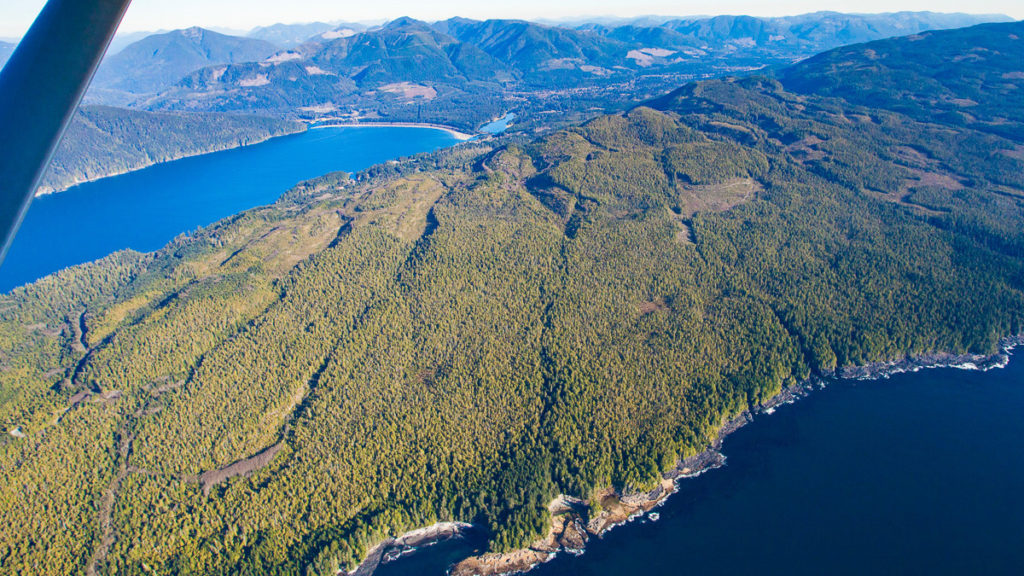
Plans to log old-growth forests near Port Renfrew have conservationists accusing the B.C. Ministry of Forests of endangering tourism in the area.
The Victoria-based Ancient Forest Alliance says government-run B.C. Timber Sales is preparing to auction 109 hectares of forest in seven cutblocks. Two of those planned cutblocks will see trees falling within 37 metres and 50 metres of the boundary of Juan de Fuca Provincial Park, known as a gentler, more accessible version of the West Coast Trail.
“Port Renfrew is changing toward a more sustainable economy based on leaving trees standing rather than cutting them down,” said T.J. Watt, campaigner with the Ancient Forest Alliance. “We are calling on B.C. Timber Sales to cancel these auctions.”
A spokeswoman for the B.C. Forests Ministry confirmed B.C. Timber Sales has advertised the timber sale identified by Ancient Forest Alliance. The sale closes on April 26. The successful buyer will have 2 1/2 years to conduct the logging.
But the spokeswoman also said when cutblocks are surveyed and positioned, considerations are always made for the ecology of the site and the esthetics of nearby views. And logging is not occurring in the park.
Meanwhile, significant areas, 55 per cent of coastal old-growth forests on Vancouver Island and the B.C. coast, have already been protected, the spokeswoman said.
B.C. Timber Sales was formed in 2003 to inject market-based pricing to Crown-owned timber as opposed to other land-based tenure systems.
The provincial agency monitors economic conditions to determine an appropriate price for the timber. About 20 per cent of the province’s total, annual allowable cut is now sold through auction.
The Ancient Forest Alliance’s objections to the B.C. Timber Sales auction received little enthusiasm from Mike Hicks, Capital Regional District director for the Juan de Fuca district.
Hicks, the closest thing the unincorporated community of Port Renfrew has to an elected local government, agreed that tourism, including environmental tourism, has taken off in recent years. But he said that logging, while diminished, remains a significant economic generator and shouldn’t be frozen out.
Hicks said Port Renfrew is reeling from Tuesday’s federal announcement of tough restrictions on fishing for chinook salmon: a catch-and-release fishery until mid-July, followed by catch limits of one to two per day depending on time of year and location.
He said he thinks the fishing closures have made economics in Port Renfrew, including its tourism, too fragile to put more obstacles in the path of business.
“Logging is a very important part of our economic survival and so is eco-tourism,” Hicks said. “They should both be able to get along.”
But John Cash, owner and founder of Soule Creek Lodge near Port Renfrew, operating wilderness huts and cabins near the Juan de Fuca Provincial Park, is concerned about the effects of nearby logging.
The noise of blasting during the building of logging roads along with chainsaws and other machinery during falling will only take away from the wilderness experience, he said. “It would be pretty unpleasant. It’s not what you want to hear when you are camping or hiking, the blasting and tree-falling.”
rwatts@timescolonist.com
See the original article

